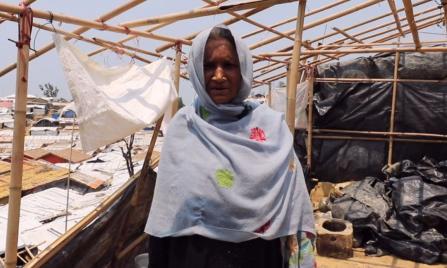-
Who we are
WHO WE AREThe International Organization for Migration (IOM) is part of the United Nations System as the leading inter-governmental organization promoting since 1951 humane and orderly migration for the benefit of all, with 175 member states and a presence in 171 countries.
-
Our Work
Our WorkAs the leading inter-governmental organization promoting since 1951 humane and orderly migration, IOM plays a key role to support the achievement of the 2030 Agenda through different areas of intervention that connect both humanitarian assistance and sustainable development.
What We Do
What We Do
Partnerships
Partnerships
- Where we work
-
Take Action
Take Action
Work with us
Work with us
Get involved
Get involved
- Data and Research
- 2030 Agenda
IOM supports Member States to integrate mobility perspectives in strategies to prevent new and reduce existing disaster risk and build resilience, in line with the priorities of the Sendai Framework for Disaster Risk Reduction. The Organization also builds capacities in preparedness to improve the ability of IOM country offices, governments, response organizations or local communities to anticipate and effectively respond to multi-hazard risks and impacts when they cannot be avoided.
The Organization’s support for disaster prevention or reduction includes providing technical support to the development of disaster risk reduction policies and plans that integrate mobility considerations. IOM assists national counterparts with multi-hazard risk assessments, community-based disaster risk management, livelihoods diversification and planned relocations.
IOM also invests in capacity building and participates in relevant inter-agency preparedness mechanisms. The Organization assists countries to develop national and sub-national disaster preparedness and response policies and plans, including through strengthened contingency planning, information management and multi-stakeholder coordination.
It supports evacuation planning to ensure populations can move safely and with dignity out of harm’s way, and works to strengthen capacities of various stakeholders to assist migrants in countries in crisis and to ensure migrants’ and diaspora communities’ inclusion in and contribution to DRR planning and programming. In the disaster recovery phase, IOM implements “build back better” initiatives to promote durable solutions by integrating resilience-building measures in the rehabilitation of infrastructure, services, livelihoods and the environment.
Since 2021, IOM is the global co-chair of the Capacity for Disaster Reduction Initiative (CADRI), together with UNDP. CADRI is the largest existing inter-agency mechanism supporting countries to integrate risk reduction in development and humanitarian response planning.










